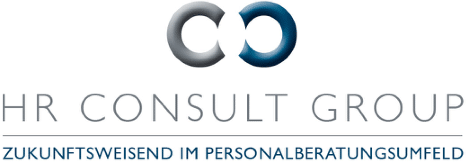Even though the COVID-19 pandemic is now several years behind us, it remains a key moment in recent economic history. Its consequences extend far beyond the immediate health crisis: it has exposed structures that had previously been slow to change and accelerated developments in many areas that would otherwise have taken years.
This change is particularly evident in HR consulting and the job market. There, short-term shocks collided with profound transformations—with consequences that continue to shape the industry today. Looking back reveals not only how companies and consultants responded to the crisis, but also which trends will shape the future.
1. HR consulting in a state of emergency
The recruitment industry was one of the first to have to reinvent itself. With the abrupt elimination of physical meetings, assessment centers, and traditional job interviews, the industry was forced to switch to digital processes within weeks.
Digitalization as a survival strategy
-
Video interviews replaced face-to-face meetings.
-
Virtual assessment centers were introduced, often improvised, but later increasingly professional.
-
Digital matching platforms and AI-powered screening tools helped make the recruitment process more efficient.
What initially arose out of necessity has become established in the long term. Many of these tools are now standard and enable faster, geographically more flexible, and data-driven recruitment.
New expectations for consultants
As change progressed, the demands placed on personnel consultants also grew:
-
They had to prepare candidates for remote interviews, overcome technical hurdles, and open up new channels of communication.
-
Consulting mandates increasingly also covered strategic issues: How can a company maintain its leadership culture in the home office? Which profiles are suitable for hybrid working models?
As a result, the role of HR consulting has evolved from a purely recruitment function to that of a strategic partner in transformation processes.
2. The labor market in shock
The pandemic acted as a stress test for the global labor market.
Massive distortions
-
Job losses: Millions of jobs were lost in sectors such as hospitality, tourism, retail, and events.
-
Short-time work and uncertainty: Many employees experienced existential uncertainty for the first time. This experience continues to shape expectations regarding job security and employer responsibility to this day.
Shift in demand
While some industries collapsed, others experienced a sharp increase:
-
Healthcare: Doctors, nurses, and medical staff were at the center of crisis management.
-
Logistics and e-commerce: Online retail has exploded—and with it, the demand for skilled workers in transportation, warehousing, and IT.
-
Technology and digitalization: Companies invested in cloud solutions, cybersecurity, and digital platforms. This led to global competition for qualified IT specialists.
3. Long-term developments and trends
This exceptional situation has led to lasting changes. Some of these were already in place, while others were triggered by the pandemic.
Remote work as an integral part
Working from home was long considered a marginal phenomenon. COVID-19 has proven that it works on a large scale. Today, many companies offer hybrid models—a paradigm shift with far-reaching consequences:
New recruitment technologies
The pandemic accelerated the introduction of digital tools:
-
AI-supported matching systems increase the speed and objectivity of the selection process.
-
Virtual assessment centers enable location-independent, standardized procedures.
-
Gamification approaches in testing and aptitude diagnostics are gaining in importance.
More flexible working models
The traditional full-time position is losing its unique status. Companies and employees are increasingly focusing on:
This opens up opportunities for greater agility, but also requires new labor law and cultural frameworks.
Corporate culture in the digital space
One of the biggest challenges remains the question: How do you maintain culture and cohesion in a distributed workforce?
-
Digital leadership skills are becoming more important than ever before.
-
Virtual formats for team building, feedback, and innovation have become an ongoing task.
-
Employer branding needs to be rethought—no longer just in the office, but also digitally.
Focus on soft skills and resilience
In addition to specialist knowledge, skills such as the following are now more important than ever:
These "future skills" determine the ability of individuals and organizations to successfully overcome crises.
4. Strategic implications for companies and HR consultants
The long-term effects of the pandemic are not only operational challenges, but also strategic tasks for management and HR consulting:
-
Realigning talent strategies: Companies must adapt to a global, digitized, and more flexible labor market.
-
Redefining leadership: Today, leadership means managing hybrid teams, building trust remotely, and fostering a resilient corporate culture.
-
Investment in continuing education: Soft skills and digital competencies are no longer "nice to have," but a must.
-
Intensify partnerships with recruitment consultants: Consultants are increasingly becoming sparring partners for transformation processes—far beyond mere recruitment.
Conclusion
The COVID-19 pandemic was a historic turning point that has permanently changed personnel consulting and the job market. What began as a short-term adjustment has given rise to long-term trends: digitalization, flexibility, new leadership models, and a greater emphasis on soft skills.
Companies and HR consultants who actively shape these changes not only secure a competitive advantage—they also contribute to building a more resilient, innovative, and humane working environment.


